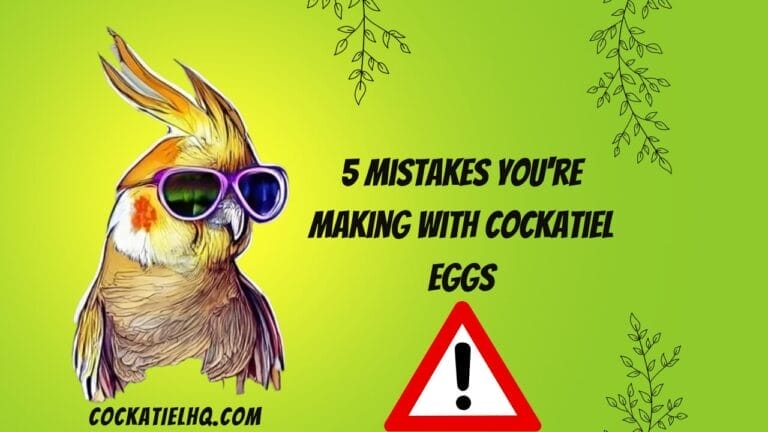Why Did My Cockatiel Laid Only One Egg: An Expert’s Insightfully Explanation
Imagine the fluttering excitement, the anticipation building up as your feathery companion shows signs of laying her first egg. You’ve prepared everything to perfection – a cozy nest, a diet enriched with calcium, and the serene, supportive environment she needs. Yet, there it lies, a single, solitary egg, leaving you puzzled and perhaps a touch heartbroken. Why did my cockatiel lay only one egg?
Understanding Cockatiel Reproduction
Cockatiels, much like other birds, have their unique patterns and timelines when it comes to breeding. Typically, a healthy female cockatiel lays a clutch of about four to six eggs, at intervals of two days. However, it’s not unheard of for a first-time mother or even an experienced breeder to lay just one egg. Several factors could be at play here.
Age and Health
- First-time layers: Young, inexperienced females might start with a single egg as their bodies adjust to the complexities of reproduction.
- Health concerns: An underlying health issue could also limit egg production. A diet lacking in essential nutrients, especially calcium, can affect egg laying.
Environmental Stressors
Cockatiels are sensitive creatures, attuned to their environment. Changes in their surroundings or a sense of insecurity could lead them to lay only a single egg. Stress can be a significant factor, influenced by loud noises, the presence of predators (or perceived threats), and even shifts in the light-dark cycle.
The Impact of Nutrition
Nutrition plays a pivotal role in the reproductive health of cockatiels. A balanced diet not only supports the overall well-being of your bird but also ensures a successful and productive laying cycle.
Essential Nutrients
Ensuring your cockatiel has access to a diet rich in calcium, vitamins, and proteins is crucial during the breeding season. Supplements can also be beneficial, but it’s always best to consult with a vet to tailor the nutritional plan to your bird’s specific needs.
Emotional Support and Nesting Conditions
Believe it or not, cockatiels thrive on emotional support from their human companions and require an optimal nesting environment to feel secure enough to lay more eggs.
The Role of Comfort and Security
Creating a calm, stable environment is essential. This means minimizing disruptions, ensuring a comfortable temperature, and providing a nesting box that offers privacy and security.
When to Seek Help
If your cockatiel consistently lays only one egg, or none at all, it might be time to consult a vet. Persistent issues with egg laying can lead to health complications like egg binding, where the egg gets stuck inside the female.
Signs of Distress
- Lack of appetite
- Swollen abdomen
- Difficulty breathing
- Lethargy or unusual behavior
Conclusion: A Journey of Care and Understanding
While initially puzzling and perhaps a tad disappointing, a single egg in the nest is not an immediate cause for alarm. It’s a learning opportunity, a moment to reflect on the conditions you’re providing for your feathered friend, and an invitation to deepen your understanding of her needs.
Here are a few takeaways:
- Patience and Observation: Keep a keen eye on your cockatiel, noting any changes in behavior or health.
- Nutritional Support: Reevaluate your bird’s diet, ensuring it meets the demands of egg production.
- Environmental Assessment: Make your cockatiel’s surroundings as stable and secure as possible.
- Veterinary Insight: When in doubt, seek the advice of a professional.
Remember, the journey of breeding cockatiels, much like any other aspect of pet care, is a partnership. It’s about fine-tuning the balance of nutrition, environment, and emotional support. So here’s to understanding, to adjustment, and to the hopeful anticipation of a nest full of chirping wonders in the cycles to come. Your commitment to your cockatiel’s health and happiness is truly what makes this journey so rewarding.

About Me
I’m Kamran, a co-founder and content creator at cockatielhq.com. With 8+ years in the world of avian enthusiasts, I’ve gained extensive knowledge in caring for birds. From egg-laying and mating to cohabitation with other birds, dietary needs, nurturing, and breeding, I’m here at cockatielhq.com to share valuable insights for your avian companions.








One Comment